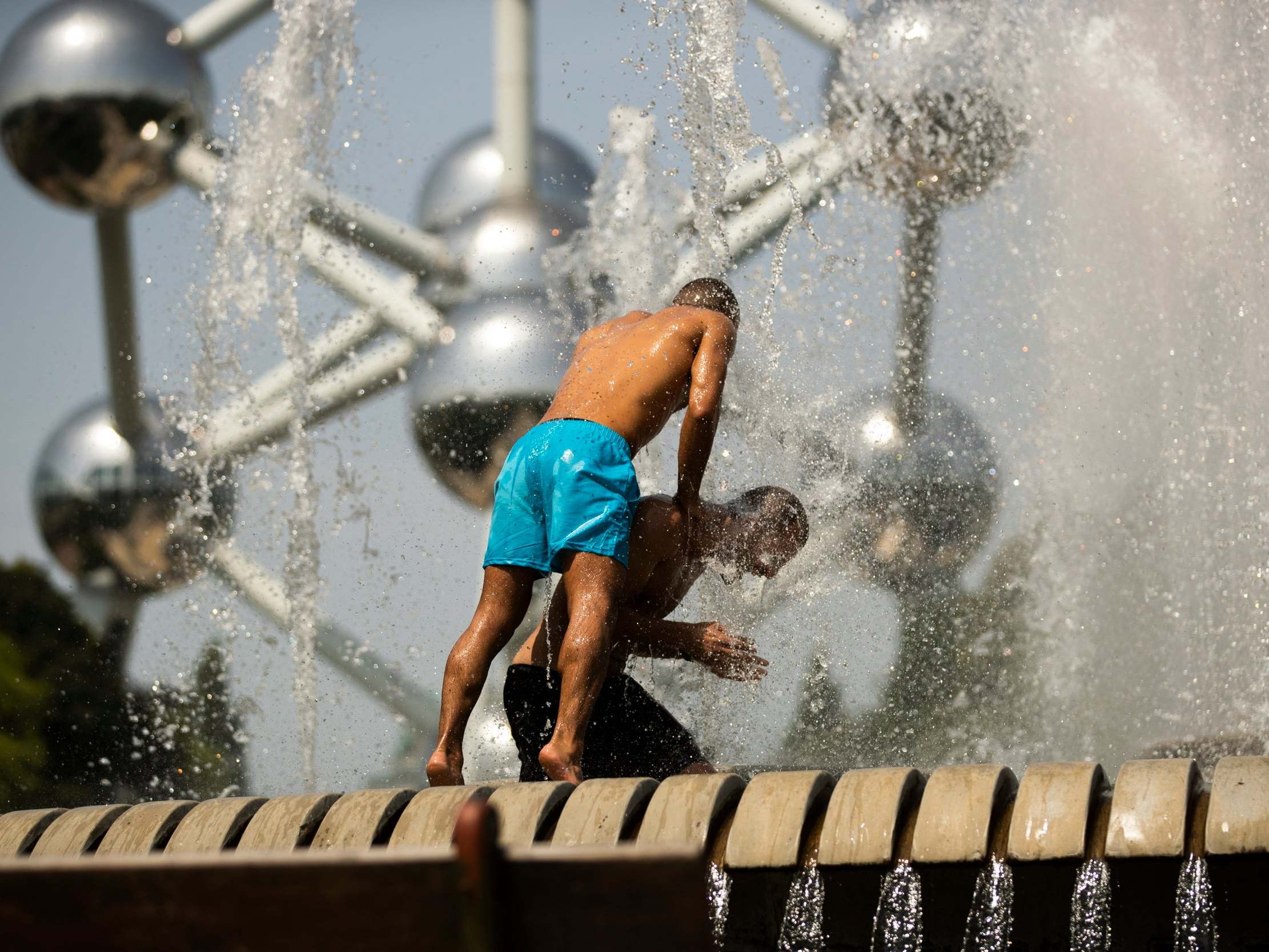Europe heatwave: Belgium and Netherlands hit all-time highs as record-breaking temperatures sweep continent
Countries see highs exceeding records set 72 years ago

Your support helps us to tell the story
From reproductive rights to climate change to Big Tech, The Independent is on the ground when the story is developing. Whether it's investigating the financials of Elon Musk's pro-Trump PAC or producing our latest documentary, 'The A Word', which shines a light on the American women fighting for reproductive rights, we know how important it is to parse out the facts from the messaging.
At such a critical moment in US history, we need reporters on the ground. Your donation allows us to keep sending journalists to speak to both sides of the story.
The Independent is trusted by Americans across the entire political spectrum. And unlike many other quality news outlets, we choose not to lock Americans out of our reporting and analysis with paywalls. We believe quality journalism should be available to everyone, paid for by those who can afford it.
Your support makes all the difference.The highest temperatures on record have been measured in Belgium and the Netherlands, with the mercury hitting 38.9C and 39.1C respectively.
The UK is also currently bracing for potentially the hottest day on record, with temperatures expected to reach 39C on Thursday, and commuters being warned to stay home.
Belgium’s record was broken in the town of Kleine Brogel in Limburg province in the north east of the country. The previous record had been set in 1947 when a reading of 38.8C was recorded in Uccle on the outskirts of Brussels on 27 June.
However, measurement conditions and technology differ today, and this temperature has been “corrected” down to 36.6 degrees.
The hottest day in Belgium’s recent history was 36.2C measured on 19 July 2006.
The extreme heat caused a Eurostar train to break down on Wednesday, trapping passengers.
In the Netherlands the Dutch meteorological service, KNMI, said a record breaking high of 39.1C was taken at Gilze-Rijen airbase near the southern city of Tilburg on Wednesday afternoon.
This exceeded the previous high of 38.6C recorded in August 1944.
Even higher temperatures are expected to hit north western Europe on Thursday, with France expecting to see its record high of 40.4C, also set in 1947, broken too.
The heat is putting pressure on authorities to help protect the elderly and the sick in many countries where air conditioning is not common.
The high temperatures are also worsening droughts, as in many regions lack of rainfall has characterised the summer in many parts of Europe.
The combination of wind and heat, with the likelihood of lightning strikes during thunderstorms increases the risk of wildfires such as those blazing in Portugal, the World Meteorological Organisation has warned.
Temperatures in France are around 15C higher than normal for the time of year, with scientists stating global temperature rises as a result of burning fossil fuels since the industrial revolution have made dangerous heatwaves five times more likely.
Professor Hannah Cloke, a natural hazards researcher at the University of Reading said: “Britain's heatwave will mercifully be relatively short-lived, with some respite over the weekend.
“But these uncomfortably hot few days and nights should serve as a reminder of what we, as a country, need to do to prepare ourselves for more heatwaves in the future. First of all, we must take the entirely achievable steps to stop making this problem worse. Unless we follow up on our commitments to tackle climate change, lethal heatwaves could become the norm in Britain by the middle of the century.”
She added: “We have good forecasts of heatwaves, but need to be smarter about how we act on early warnings. Key authorities such as councils, hospitals, fire brigades and anyone looking after core infrastructure must act quickly to make sure that they keep vital services going, and don't make problems such as air pollution any worse.”
Join our commenting forum
Join thought-provoking conversations, follow other Independent readers and see their replies
Comments